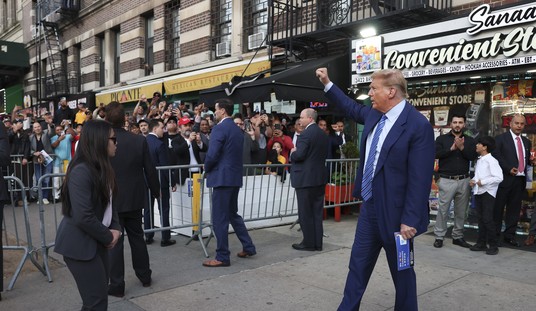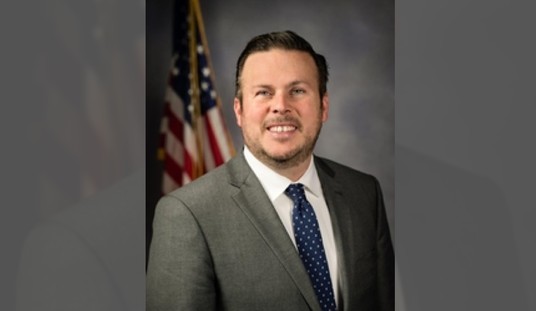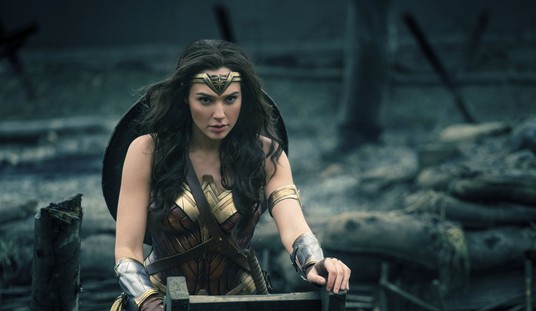Clint Eastwood’s woeful, inept biopic J. Edgar may not be the worst movie he’s ever made (that’s debatable), but it’s so histrionic, one-sided and unserious that it will stand as the Mommie Dearest of G-man pictures.
J. Edgar is a “Please don’t” picture; mentally, you’ll find yourself saying “Please don’t” when, for instance, Eastwood shows Leonardo DiCaprio’s J.Edgar Hoover lounging around in silky dressing gowns with Clyde Tolson (a campy Armie Hammer, who played the Winklevoss twins in The Social Network) making bitchy remarks about Desi Arnaz’s shoes. Please don’t, Clint. And if a squabble should break out between the two of them, please don’t let it end with Clyde straddling a breathless and sweaty Edgar on the floor and forcefully kissing him.
Yet that’s exactly what happens, and it’s not even the worst scene in this dreadful movie. That honor must go to the soon-to-be-notorious scene in which Edgar, stricken by the death of his domineering, gay-hating mom (Judi Dench), puts on first her necklace, then her dress, then breaks down in tears.
We can take J. Edgar Hoover as a self-aggrandizing creep who abused his authority and served eight presidents, mostly as FBI chief, by making them fear he might blackmail them with his confidential files. But must he also be a crybaby?
DiCaprio is awful. He spends most of the movie under about four inches of makeup as he plays Hoover in the 1960s, reflecting on his youth while trying to bring down Martin Luther King Jr. and blackmailing the Kennedy brothers. The device of Hoover telling his life story for posterity, which screenwriter Dustin Lance Black effectively used in his Oscar-winning script for Milk, this time feels forced and false, not to mention stiff and unoriginal. An FBI agent who takes down Hoover’s reminiscences keeps cross-examining and second-guessing him, as indeed do virtually all of the characters Hoover encounters in the movie.
The incessant attacks on Hoover that constitute this movie don’t even fit together. If he was such a terrifying, nearly omnipotent figure, why does everyone he meets feel free to tell him everything he’s doing wrong?J. Edgar doesn’t have a story as such; there is no mystery that needs to be solved, no goal to be met, no character-defining “Rosebud” moment. Instead, there are more than two hours of full-on vilification. Eastwood showed considerably more subtlety and sympathy in his portrayal of the Japanese army in Letters from Iwo Jima, and his Hoover is such a loathsome, craven, malicious, duplicitous, paranoid twerp that it’s a wonder what drove the director to make this movie in the first place. Give Oliver Stone credit: In his hands, Hoover would at least have been interesting — a cackling, domineering villain who pulled America’s strings behind the scenes. In Eastwood’s film, he’s a fat, petty old jerk, forever muttering on and on about communist subversives (sounding like a less coherent version of Sterling Hayden in Dr. Strangelove).
This would-be Oscar contender, which will instead be forgotten by Thanksgiving, went wrong from the very start. DiCaprio — a wisp of a man who still looks like a boy and, in old-age makeup, simply resembles an ancient toddler — was a spectacularly bad choice to play the title role. DiCaprio lacks the presence and authority you would ascribe to a vice principal. However could a sniveling, stuttering, freak like his Hoover ever have made presidents tremble? More likely, he would have made them laugh in much the same way that this movie will soon be laughed at on cable TV.
The screenwriter, Black, can only have been chosen because of the supposed gay connection between Harvey Milk and Hoover. Though Hoover and Tolson were close, we simply don’t know whether Hoover was gay, but Black makes the gay theme central to his script, showing Hoover as a young man having an incredibly awkward first date with a secretary (Naomi Watts) and later practically breaking out in hives when attending a dance club with flirtatious women. If Hoover was so weird around the secretary, why did she go on to serve him faithfully for decades? There is a case to be made that Hoover was straight given that he dated Dorothy Lamour (the scene in which Tolson finds out about this leads to their imagined fight/wrestling match/smooch). And there is no particular reason to believe the rumor that Hoover was a cross-dresser, yet the movie can’t resist putting DiCaprio in a dress. Among Black’s other inventions are that Hoover was listening to wiretaps of King having sex when he got the news that JFK had been shot and that Hoover called Bobby Kennedy to tell him, “The President has been shot,” then hung up the phone immediately as RFK tried to speak. The movie keeps hitting the same note: Hoover was at a freak, a monster, a lout.
You would think that, if Hoover was gay, that would be a redeeming quality. At least that would show consistency, because gays are perhaps second only to Muslims among those groups who are least likely to be portrayed on screen as loathsome. But no.
There’s no doubting that Hoover was a publicity hound, but there is also no point in making a biopic so lacking in nuance or even a story arc. Clint Eastwood: What were you thinking?








Join the conversation as a VIP Member